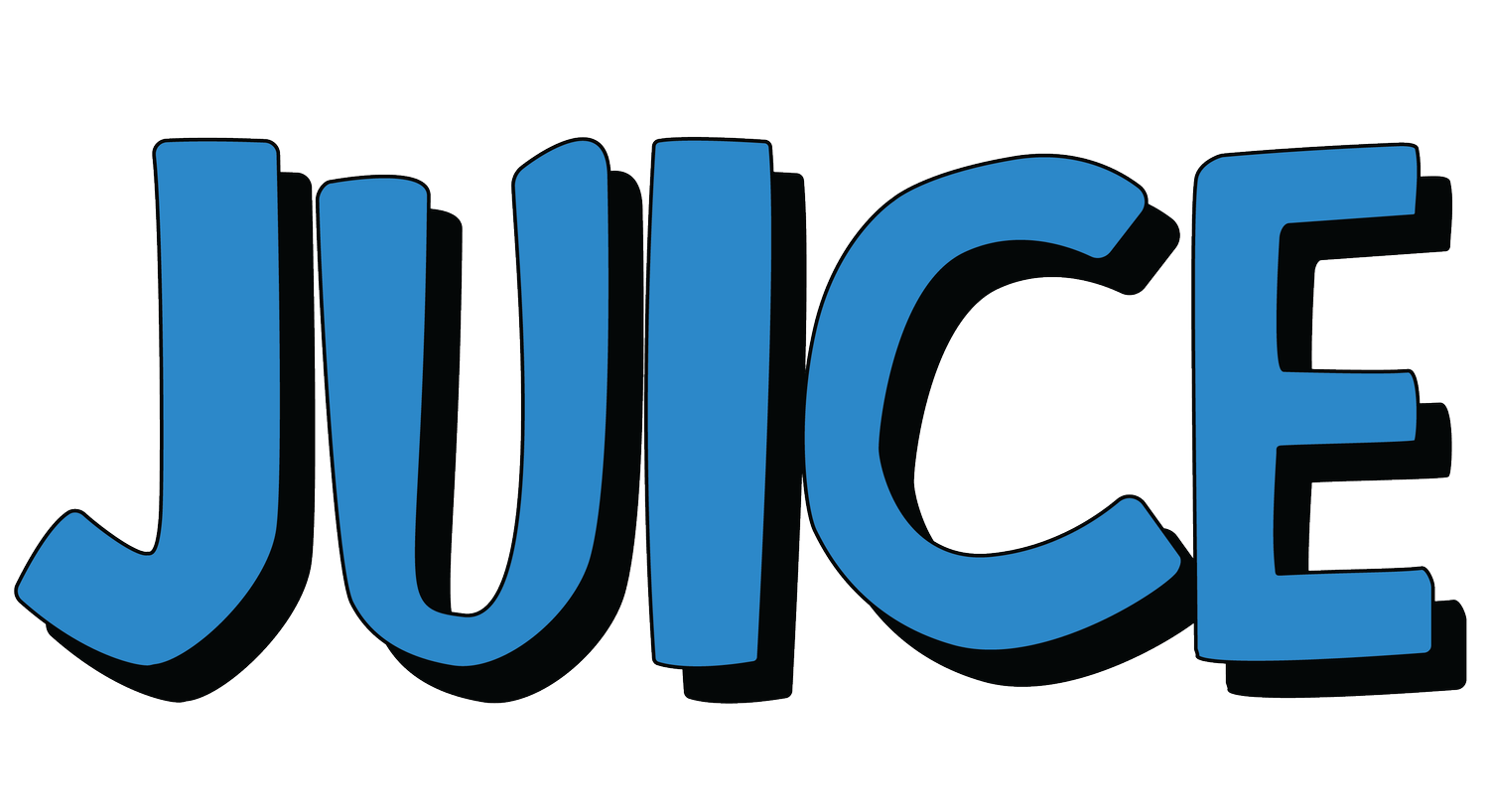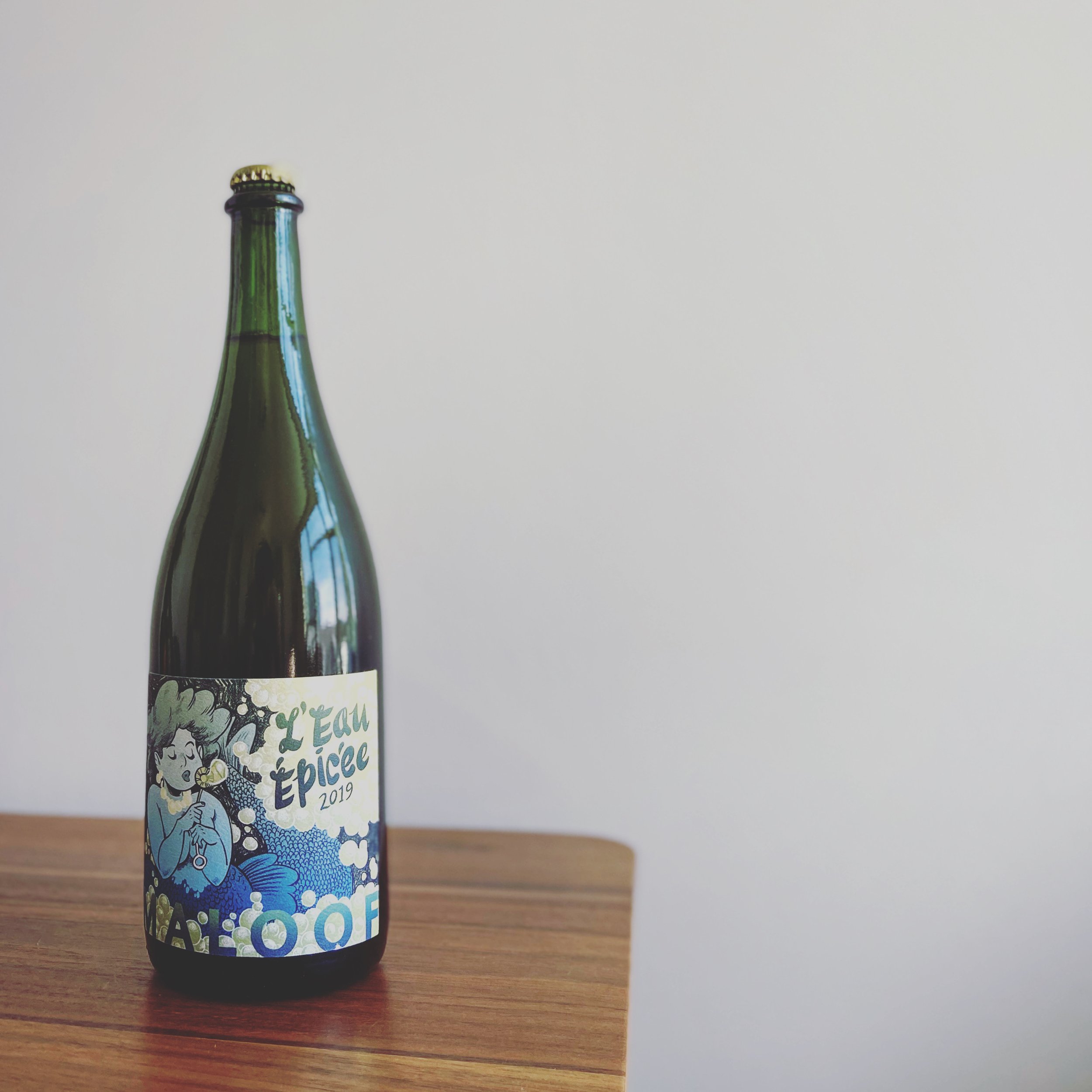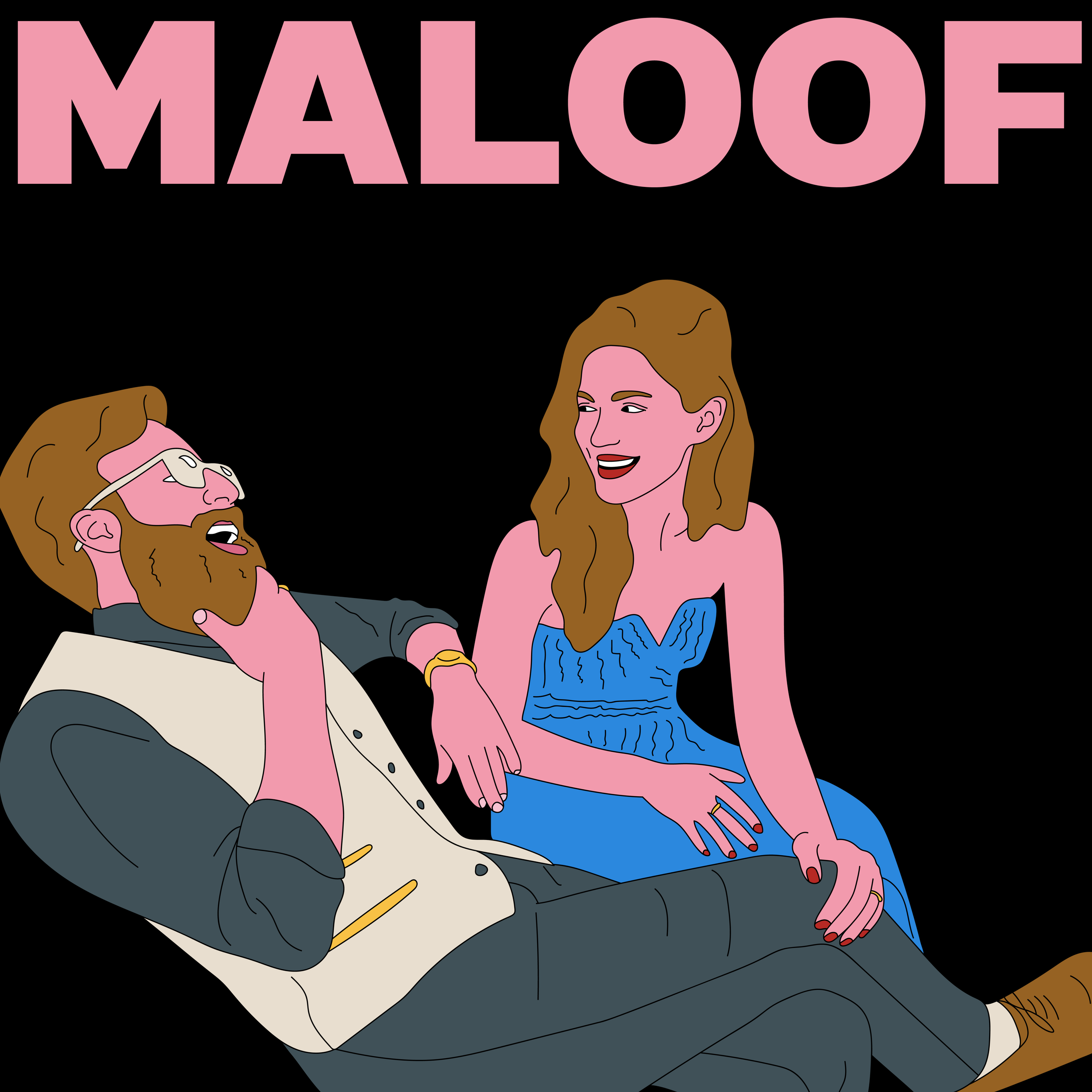MALOOF PAST WINES
2022 WAX ON WAX SOIF ROUGE
Ron & Laurie Burley planted this site in the Applegate Valley in 1993. Much cooler than most of the region this site sits near the river on a combination of granite and alluvial deposits. This organic vineyard is consistently Ross & Bee’s last pick each vintage. The wine is made from Syrah (30%), Grenache (60%), and Viognier (10%) co-fermented on skins for seven days. The wine is pressed off into neutral barrel for élevage. It is then racked and bottled unfined, unfiltered, with 30ppm of SO2. Only 118 cases were produced.
2021 OAK RIDGE GEWURZTRAMINER
Marlene and Thomas Woodward’s site sits at 1400 feet above sea level in the White Salmon Valley, part of the Columbia Gorge AVA. The forty-year-old organic Gewurztraminer vines rest in Chemawa soils, facing south in the foothills of Mount Adams. Ross & Bee have been desperate to get their hands on this fruit again for a few years, so this cuvée feels particularly special to them. The grapes are fermented on skins for 19 days before being pressed off into neutral Burgundy barrels for an 8-month élevage. It was bottled unfined and unfiltered with 30ppm of SO2. Only 149 cases were produced.
2020 WAX ON WAX SOIF BLANCHE
This site was planted by Herb Quady, Applegate Valley’s legendary organic farmer. At over 1400 feet above sea level, the juvenile vines sit in granitic soils. The wine is made from Grenache Blanc (30%), Marsanne (30%), and Viognier (40%). The grapes were direct pressed into neutral barrel for both fermentation and élevage. The wine is racked and bottled, unfined and unfiltered with 30ppm of SO2. Only 103 cases were produced. 11.5% ABV
2020 JOHAN ROUGE DE GRIS
Johan Vineyard is planted in the cool Van Duzer Corridor Sub-AVA of the Willamette Valley. Achieving Demeter Biodynamic certification in 2010, this site features marine sediment and granite. The Pinot Gris grapes were treated as you would Pinot Noir. 70% was destemmed and fermented on skins for 17 days with quotidien punch downs to ensure the cap stays moist. 10% was fermented carbonically and the remainder was direct pressed. Élevage was completed in neutral barrels before bottling unfined and unfiltered eight months later. 299 cases were produced. 12.5% ABV
2020 NO CLOS RADIO PINOT GRIS
This site is in the newly recognized AVA of Tualatin Hills, west of Portland. The isolated vineyard is surrounded by forest and features typical Jory and Loess, as well as pisolitic iron and manganese. It was originally planted by Harvey Shafer in the 1970’s, but Ross & Bee were able to purchase the site in collaboration with their friends Jenny & Jim of Fossil & Fawn. The vines are own rooted and dry farmed. Although the vineyard was being farmed sustainably, its new stewards are pursuing organic certification. The Pinot Gris was direct pressed into neutral barrel for fermentation and élevage on full lees. No batonnage is done. The wine is bottled unfined, unfiltered, and with 30ppm of SO2. Only 69 cases produced. 12% ABV
2020 SCRAMBLED STICKS
This cuvée comes from the famed Johan Vineyard. Since 2007 this cold site has been farmed biodynamically. Their location in the Van Duzer corridor, a depression in the coastal range that permits cool oceanic winds to enter the Willamette Valley, adds to the uniqueness of the site. Soils here are marine sediment and granite. This wine is a blend of Ribolla Gialla (35%), Pinot Gris (30%), Tocai Friulano (20%), and Chardonnay (15%). Some of the Pinot Gris was fermented on skins for nine months in an amphora made by Andrew Beckham. Ribolla Gialla and Tocai Friula were also direct pressed into an amphora for both fermentation and élevage. The rest of the wine is a combination of direct press and skin fermented wines aged in neutral barrel. 12.5% ABV
2021 WHERE YA PJS AT?
Three own-rooted sites were used for this cuvée: No Clos Radio and Plum Hill Vineyard in Tualatin Hills, and Logsdon Ridge near Corvalis. Each site is incredibly unique, but the farming is unanimously organic and unirrigated. This wine is made from Pinot Gris (80%), most of which was fermented on skins (open top and carbonic for 20 days), but some were directly pressed into barrels. The remainder is direct pressed Riesling (15%) and skin-fermented Schônburger. The finished wine was bottled unfined, unfiltered, and with 30ppm of SO2.
2021 L’EAU EPICÉE
he fruit for this cuvée comes from an unnamed vineyard behind a house in Sherwood, Oregon. This plot in the Chehalem Mountains was planted in the 90s on classic Jory soils. Onesimo Mora farms this own-rooted site using organic practices and without irrigation. Riesling (55%) and Gewürztraminer (45%) were direct pressed into stainless steel tank for fermentation, although nearly half of the latter was fermented on skins for extra texture and aromatic intensity. Once the wine was fully dry, it was racked into barrel, where Ross & Bee added a small amount of freshly thawed, unfermented Riesling juice collected at pressing. The wine is then bottled and allowed to undergo secondary fermentation in bottle over the winter/spring. Three hundred fifty cases were produced.
2021 WAX ON WAX SOIF ROUGE
Ron & Laurie Burley planted this site in the Applegate Valley in 1993. Much cooler than most of the region, this site sits near the river on a combination of granite and alluvial deposits. This organic vineyard is consistently Ross & Bee’s last pick each vintage (October 5th). The wine is made from Grenache (60%), Syrah (30%), and Viognier (10%) co-fermented on skins for eight days. The wine is pressed off into neutral barrel for élevage. It is then racked and bottled unfined and unfiltered with 30ppm of SO2. 544 cases were produced.
2021 THISTLE PINOT GRIS
Haaken Lenai Vineyard (originally Thistle Vineyard) was planted in 2000 by Jon & Laura Jennison. Last year it was purchased by Cody Wright, who continues to lease the only two blocks of Pinot Gris to Ross & Bee. The vineyard sits at 700 feet above sea level in the Dundee Hills AVA. Soils here are classic Jory. The grapes were direct pressed into neutral barrel for both fermentation and élevage. After eight months on lees, the wine is racked and bottled without fining or filtering. 172 cases were produced.
2020 NO CLOS RADIO RIESLING
This site is in the newly recognized AVA of Tualatin Hills, west of Portland. The isolated vineyard is surrounded by forest and features typical Jory and Loess, as well as pisolitic iron and manganese. It was originally planted by Harvey Shafer in the 1970’s, but Ross & Bee were able to purchase the site in collaboration with their friends Jenny & Jim of Fossil & Fawn. The vines are own rooted and dry farmed. Although the vineyard was being farmed sustainably, its new stewards are pursuing organic certification. The Riesling was crushed by foot before being pressed off into neutral burgundy barrels. After a short élevage, the wine is filtered and bottled with 9 g/l of residual sugar - essentially Oregon Feinherb. 151 cases were produced. 11% ABV
2021 NEMARNIKI RIESLING
2020 WHERE YA PJS AT?
Four own-rooted sites were used for this cuvée: No Clos Radio in Tualatin Hills, Oracle Vineyard in Dundee Hills, Logsdon Ridge near Corvalis, and Onesimo’s unnamed site in the Chehalem Mountains. Each site is incredibly unique; abandoned vines are coming back to life, isolated mountain paradises, backyard plantings and so forth. This wine is made from Pinot Gris (80%), most of which was fermented on skins (open top and carbonic for 20 days), but some were directly pressed into barrels. The remainder is direct pressed Riesling. The finished wine was bottled unfined, unfiltered, and with 22ppm of SO2. Nine hundred five cases were produced. 11.5% ABV
2020 L’EAU EPICÉE
The fruit for this cuvée comes from an unnamed vineyard behind a house in Sherwood, Oregon. This plot in the Chehalem Mountains was planted in the 90s on classic Jory soils. Onesimo Mora farms this own-rooted site using organic practices and without irrigation. Riesling and Gewürztraminer were direct pressed into neutral barrel for fermentation, although a small amount of the latter was fermented on skins for extra texture and aromatic intensity. Once the wine was fully dry, it was racked into stainless steel, where Ross & Bee added a small amount of freshly thawed, unfermented Riesling juice collected at pressing. The wine is then bottled and allowed to undergo secondary fermentation in bottle over the winter/spring. Three hundred five cases were produced. 11.5% ABV
2020 WAX ON WAX SOIF ROUGE
Ron & Laurie Burley planted this site in the Applegate Valley in 1993. Much cooler than most of the region this site sits near the river on a combination of granite and alluvial deposits. This organic vineyard is consistently Ross & Bee’s last pick each vintage. The wine is made from Syrah (52%), Grenache (18%), Marsanne (15%), and Viognier (15%) co-fermented on skins for seven days. The wine is pressed off into neutral barrel for élevage. It is then racked and bottled unfined and unfiltered. Only 118 cases were produced. 12.5% ABV
2020 TEMPERANCE HILL PINOT GRIS
Dai Crisp has been managing this legendary vineyard for the past twenty years. Located in the coolest section of the Eola-Amity hills, this site feels the full wrath of the Van Duzer Corridor, a break in the coastal range that allows cold ocean winds into the valley. This delays afternoon ripening, increases skin thickness, and decreases berry size. Planted on Ritner and Nekia soils, the vines are dry farmed. Pinot Gris tends to command far lower prices than Pinot Noir, so the intention was to replant. Ross & Bee realized what a shame it would be to lose this superb fruit and offered to pay Pinot Noir prices - what seemed fool hardy at first has resulted in a new benchmark for the variety in Oregon. The grapes were harvested in two passes, one on September 28th for higher acid, and a second on October 11th for structure. The grapes were direct pressed into neutral barrels for fermentation and a ten-month élevage. The final wine was lightly filtered and bottled with a small amount of residual sugar. 287 cases made this vintage. 13.5% ABV
2020 NO CLOS RADIO GEWURZTRAMINER
This site is in the newly recognized AVA of Tualatin Hills, west of Portland. The isolated vineyard is surrounded by forest and features typical Jory and Loess, as well as pisolitic iron and manganese. It was originally planted by Harvey Shafer in the 1970’s, but Ross & Bee were able to purchase the site in collaboration with their friends Jenny & Jim of Fossil & Fawn. The vines are own rooted and dry farmed. Although the vineyard was being farmed sustainably, its new stewards are pursuing organic certification. The Gewurztraminer were destemmed and fermented on skin in open top tank until dry, 16 days. The wine is then pressed off into neutral puncheon for élevage. The wine is bottled unfined, unfiltered, and with 30ppm of SO2. 104 cases produced. 12.5% ABV
2020 JOHAN RIBOLLA GIALLA
Johan Vineyard is celebrating its 10th year farming biodynamically in the Willamette Valley’s Van Duzer Corridor. Dan Rinke, their vineyard manager, started grafting some of the vineyard over unsung varieties in the early 00s, including this plot of Ribolla Gialla. Ross & Bee direct press the grapes into neutral barrel where it ferments and ages on full lees for 10 months. Only 73 cases were produced. 12.5% ABV
2019 TEMPERANCE HILL PINOT GRIS
Dai Crisp has been managing this legendary vineyard for the past twenty years. Located in the coolest section of the Eola-Amity hills, this site feels the full wrath of the Van Duzer Corridor, a break in the coastal range that allows cold ocean winds into the valley. This delays afternoon ripening, increases skin thickness, and decreases berry size. Planted on Ritner and Nekia soils, the vines are dry farmed. Pinot Gris tends to command far lower prices than Pinot Noir, so the intention was to replant. Ross & Bee realized what a shame it would be to lose this superb fruit and offered to pay Pinot Noir prices - what seemed fool hardy at first has resulted in a new benchmark for the variety in Oregon. The grapes were harvested in two passes, one on September 28th for higher acid, and a second on October 11th for structure. The grapes were direct pressed into neutral barrels for fermentation and a ten-month élevage. The final wine was lightly filtered and bottled with a small amount of residual sugar. 287 cases made this vintage. 14% ABV
2019 WAX ON WAX SOIF ROUGE
Ron & Laurie Burley planted this site in the Applegate Valley in 1993. Much cooler than most of the region, this site sits near the river on a combination of granite and alluvial deposits. This organic vineyard is consistently Ross & Bee’s last pick each vintage. The wine is made from Syrah (85%) and Viognier (15%) co-fermented on skins for seven days. The wine is pressed off into neutral barrel for élevage. It is then racked and bottled unfined and unfiltered. Only 164 cases were produced.
2019 WAX ON WAX SOIF BLANCHE
This site was planted by Herb Quady, Applegate Valley’s legendary organic farmer. At over 1400 feet above sea level, the juvenile vines sit in granitic soils. The wine is made from roughly equal parts Grenache Blanc, Marsanne, and Viognier. The grapes were direct pressed into neutral barrel for both fermentation and élevage. The wine is racked and bottled unfined and unfiltered. Only 95 cases were produced.
2019 SCRAMBLED STICKS
This cuvée comes from the famed Johan Vineyard. Since 2007 this cold site has been farmed biodynamically. Their location in the Van Duzer corridor, a depression in the coastal range that permits cool oceanic winds to enter the Willamette Valley, adds to the uniqueness of the site. Soils here are marine sediment and granite. This wine is a blend of Ribolla Gialla (35%), Pinot Gris (30%), Tocai Friulano (20%), and Chardonnay (15%). Some of the Pinot Gris was fermented on skins for nine months in an amphora made by Andrew Beckham. Ribolla Gialla and Tocai Friula were also direct pressed into an amphora for both fermentation and élevage. The rest of the wine is a combination of direct press and skin fermented wines aged in neutral barrel. 180 cases were produced this year.
2019 THISTLE PINOT GRIS
Haaken Lenai Vineyard (originally Thistle Vineyard) was planted in 2000 by Jon & Laura Jennison. Last year it was purchased by Cody Wright who continues to lease the only two blocks of Pinot Gris to Ross & Bee. The vineyard sits at 700 feet above sea level in the Dundee Hills AVA. Soils here are classic Jory. The grapes were direct pressed into neutral barrel for both fermentation and élevage. After nine months on lees the wine is racked and bottled without fining or filtering. 316 cases were produced.
2019 BECKENRIDGE GEWURZTRAMINER
This site is farmed by Ken & Becky Jacroux who, after full and successful careers in telecommunications and systems engineering, decided to return to their home state to tend vines. This site near Dallas in the Willamette Valley is currently in conversion to organic farming. The vines themselves were planted in 1976 and are both own rooted and dry farmed. Soils are classic Jory and Loam. The grapes ferment on skins for 22 days before being pressed off into neutral barrel for a ten-month élevage. The wine is then bottled unfined and unfiltered. 179 cases were produced.






















